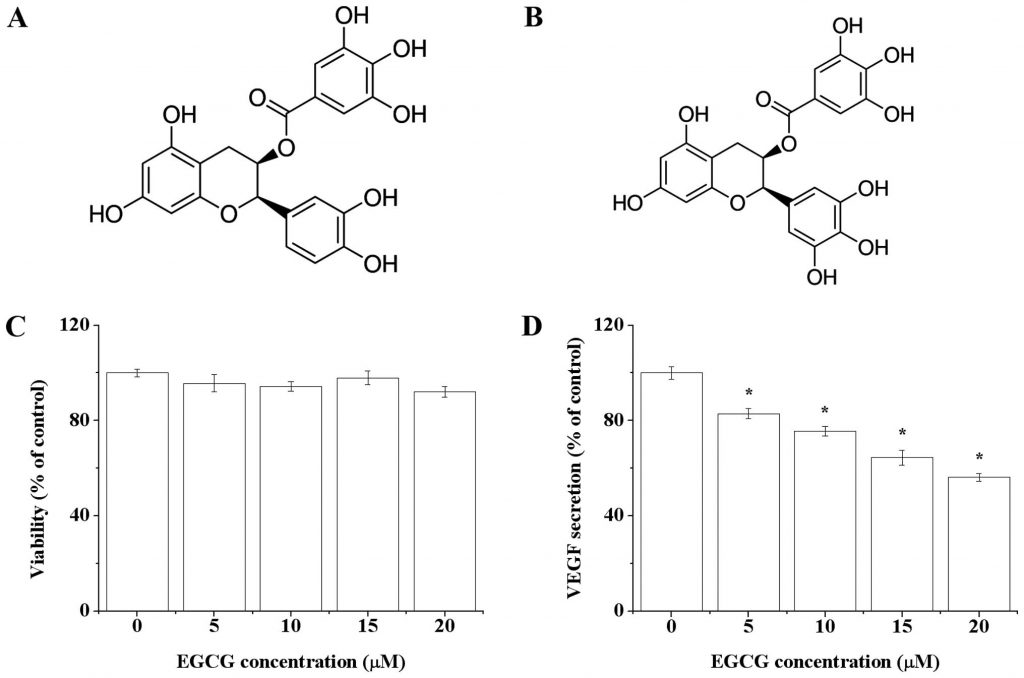Recent Findings in Carcinomas Described by Researchers from Zhejiang University (Theaflavin-3, 3′-digallate decreases human ovarian carcinoma OVCAR-3 cell-induced angiogenesis via Akt and Notch-1 pathways, not via MAPK pathways)
By a News Reporter-Staff News Editor at Angiogenesis Weekly — Investigators publish new report on Oncology – Carcinomas. According to news reporting originating from Hangzhou, People’s Republic of China, by NewsRx correspondents, research stated, “Theaflavin-3, 3′-digallate (TF3) is a black tea polyphenol produced from polymerization and oxidization of the green tea ployphenols epicatechin gallate and (-)-epigallocatechin-3-gallate (EGCG) during fermentation of fresh tea leaves. TF3 has been reported to have anticancer properties.”
Our news editors obtained a quote from the research from Zhejiang University, “However, the effect of TF3 on tumor angiogenesis and the underlying mechanisms are not clear. In the present study, TF3 was verified to inhibit tumor angiogenesis. Compared with EGCG, TF3 was more potent. TF3 inhibited human ovarian carcinoma OVCAR-3 cell-induced angiogenesis in human umbilical vein endothelial cell model and in chick chorioallantoic membrane model. TF3 reduced tumor angiogenesis by downregulating HIF-1a and VEGF. One of the mechanisms was TF3 inactivated Akt/mTOR/p70S6K/4E-BP1 pathway and Akt/c-Myc pathway. Besides, TF3 suppressed the cleavage of Notch-1, subsequently decreased the expression of c-Myc, HIF-1a and VEGF, and finally the impaired cancer cells induced angiogenesis. Nevertheless, TF3 did not have any influence on the MAPK pathways.”

